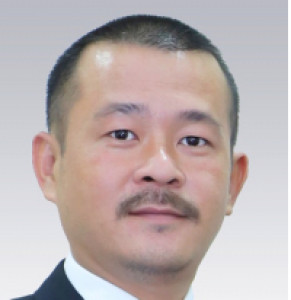Dealing with disputes in the .vn domain
31 August 2020

As internet usage has fully permeated Vietnam, brand owners are discovering just how valuable domain names can be. Duc Dang and Hong Anh Thi Nguyen examine how to protect your trade name or trademark from unscrupulous use online.
With significant growth in internet usage and online commercial activities, domain names and websites have become important marketing and business tools through which companies can promote their entities, brands, products, and services and conduct commercial and non-commercial activities on a global scale. Typically, a company uses its own trade name or trademarks for determining its website address making it easy for customers to identify the company and its goods and services as well as developing a consistent and unique identification for the company.
Because domain names have a unique character, issues arise between owners of similar or identical trade names or marks who wish to use and register the same domain name derivated from such names or trademarks. In Vietnam, domain name registry is designated by the top-level domain .vn. Domain names are assigned on a first-come, first-served basis, and, in practice, there are abuses of this procedure resulting in the improper registration of .vn domains through speculative registration for profit; cybersquatting and abusive registration for the purpose of unfair competition or in attempts to profit from the reputation or good will of other entities. These actions lead to domain name disputes.
This article will discuss how to resolve .vn domain name disputes under the laws of Vietnam.
Legal provisions
A dispute over .vn domain names can be resolved by conciliation and mediation, civil lawsuits, or through arbitration. In practice, civil suits in the courts are the most popular method for dispute resolution of .vn domain name disputes in Vietnam. The possible basis for dealing with domain name disputes in civil suits comprise:
- The domain name in dispute is identical or confusingly similar to the plaintiff’s name; or identical to or confusingly similar to the trademark in which the plaintiff has lawful rights or interests;
- The defendant does not have lawful rights or interests related to the domain name. A defendant will be deemed to have lawful rights and interests relating to a domain name upon satisfaction of one of the following conditions: a) having used or having a convincing proof that the defendant is going to use such domain name or a corresponding name to that domain name in relation to the actual provision of products, goods or services before the dispute arises; b) being known by such domain name by the public in spite of having no right to a similar trademark; c) using such domain name legally not for commercial purposes, or using such domain name properly not for commercial purposes or without causing misunderstanding or confusion for the public affecting the trade name or trademark of the plaintiff; or d) having other proof of the legality of the defendant relating to such domain name;
- The defendant leases or transfers a domain name to the plaintiff being the owner of a name, trademark, or service brand which is identical to or similar to the extent of causing confusion with such domain name; or leases or transfers the domain name to a competitor of the plaintiff for its own benefit or for improper profit;
- The defendant appropriates or prevents the plaintiff, being the owner of a name or trademark, from registering a domain name corresponding to such name or trademark for the purpose of unfair competition;
- The defendant uses a domain name to destroy the reputation of the plaintiff, obstruct the business operation of the plaintiff or to cause confusion or make the public lose their trust in the name, trademark or service brand of the plaintiff for the purpose of unfair competition; or
- Other cases where it is proved that the use of a domain name by the defendant infringes the lawful rights and interests of the plaintiff.
Where a .vn domain name registered by the defendant is concluded to infringe the protected intellectual property rights of the plaintiff by a competent authority, the defendant shall be subject to administrative sanctions, including the revocation of the infringing .vn domain name. In order to impose administrative sanctions (i) the domain name in dispute must be identical or confusingly similar to a protected mark, trade name, or geographical indication over which its owner has the lawful rights or interests; (ii) the defendant must have no lawful rights and interests to the protected mark, trade name, or geographical indication; and (iii) the website pointed to by the domain name in dispute must be used for the purpose of defendant’s unfair competition as provided in the intellectual property laws and regulations of Vietnam
Competent authorities for handling .vn domain name disputes include specialized inspectorates of the Ministry of Information and Communications (MOIC) and of the Ministry of Science and Technology (MOST). The Vietnam Internet Network Information Center shall be responsible for provision of information for facilitating the resolution of the dispute, and for implementation of the successful settlement minutes, arbitral award, judgment, or valid decision of a specialized inspectorate in accordance with the prescribed procedure.
Case study
Plaintiff: OSRAM GMBH (DE);
Defendant: Nguyen Duc T (VN)
Domain names in dispute: osram.com.vn and osram.vn, registered by the defendant in March 2014 (domainnames)
Handled by the People’s Court of Hanoi (the court)
Facts
The plaintiff was a lighting manufacturer established in Germany in 1919 that owned the trademarks “Osram” (in word form and certain designs) (trademarks), which were registered in more than 150 countries, of which the earliest registration was in 1906. The first designation in Vietnam was in 1966. The trademarks had also been recognized as well-known trademarks in various countries including Germany, Austria, Portugal, Brazil, Japan, South Korea, and Thailand.
The plaintiff owned more than 640 domain names based on the trademarks and conducted business activities including the provision of lighting products and related services in different countries through its websites, including websites using the domain names.
The defendant had registered the domain names and used them to establish websites serving his company’s business activities, including providing goods and services which were identical or similar to ones falling within the scope of trademark protection as registered by the plaintiff.
The plaintiff requested the court to pronounce judgement to:
- Revoke the domain names and give a priority to the plaintiff for registration of the same;
- Order the defendant to pay compensation for the plaintiff’s actual damages resulting from the defendant’s act of unfair competition, including related legal fees for resolving the case; and
- Order the defendant to apologize on public media for its act of unfair competition.
Arguments
The plaintiff’s arguments included:
- The plaintiff’s trademarks had been registered and used in Vietnam for goods and services as specified in relevant trademark registrations, so that they were protected and should have been considered well-known trademarks in Vietnam. The plaintiff had not granted license to the defendant for use of their trademarks in Vietnam;
- The domain names contain the sign “Osram,” which were identical or confusingly similar to the trademarks, and was used for the defendant’s website for the purpose of providing goods and services which were similar or identical to goods or services that fell within the scope of protection of the plaintiff’s trademarks without plaintiff’s authorization. Such use of the domain names by the defendant may have misled consumers as to the relationship between the defendant and the plaintiff, and should have been considered an act of unfair competition.
The defendant’s arguments included:
- The domain names were legally given to the defendant by the Vietnam Internet Network Information Center, and therefore, its use of the same for establishing the websites for conducting business activities was also legal;
- The plaintiff did not have the right to initiate a lawsuit requesting the revocation of the domain names because the domain names were not subjects protected under the IP law under which the trademarks were protected.
The court’s consideration and award at the first hearing
In consideration of the facts and evidence provided by the parties in dispute, the court recognized the registration validity of the plaintiff’s trademarks in Vietnam, and was of the opinion that the act of registering the domain names containing the sign of “Osram” which was identical or similar to the plaintiff’s trademarks, and the use of the same for the defendant’s website for providing goods and services which were similar or identical to ones within the scope of the trademarks protection were considered as an act of unfair competition, and accordingly, the plaintiff’s initiation of the lawsuit and request for revocation of the domain names was legal and accepted. Accordingly, the court:
- Revoked the domain names and gave the plaintiff a priority for registering such domain names within 15 working days from the effective date of the award;
- Ordered the defendant to pay an amount to the plaintiff as the compensation for damages; and
- Ordered the defendant to publicly apologize to the plaintiff in three consecutive issues of certain newspapers.
As published by the Vietnam Internet Network Information Center, the Domain Names were registered on December 24, 2019, in the name of OSRAM GMBH.








